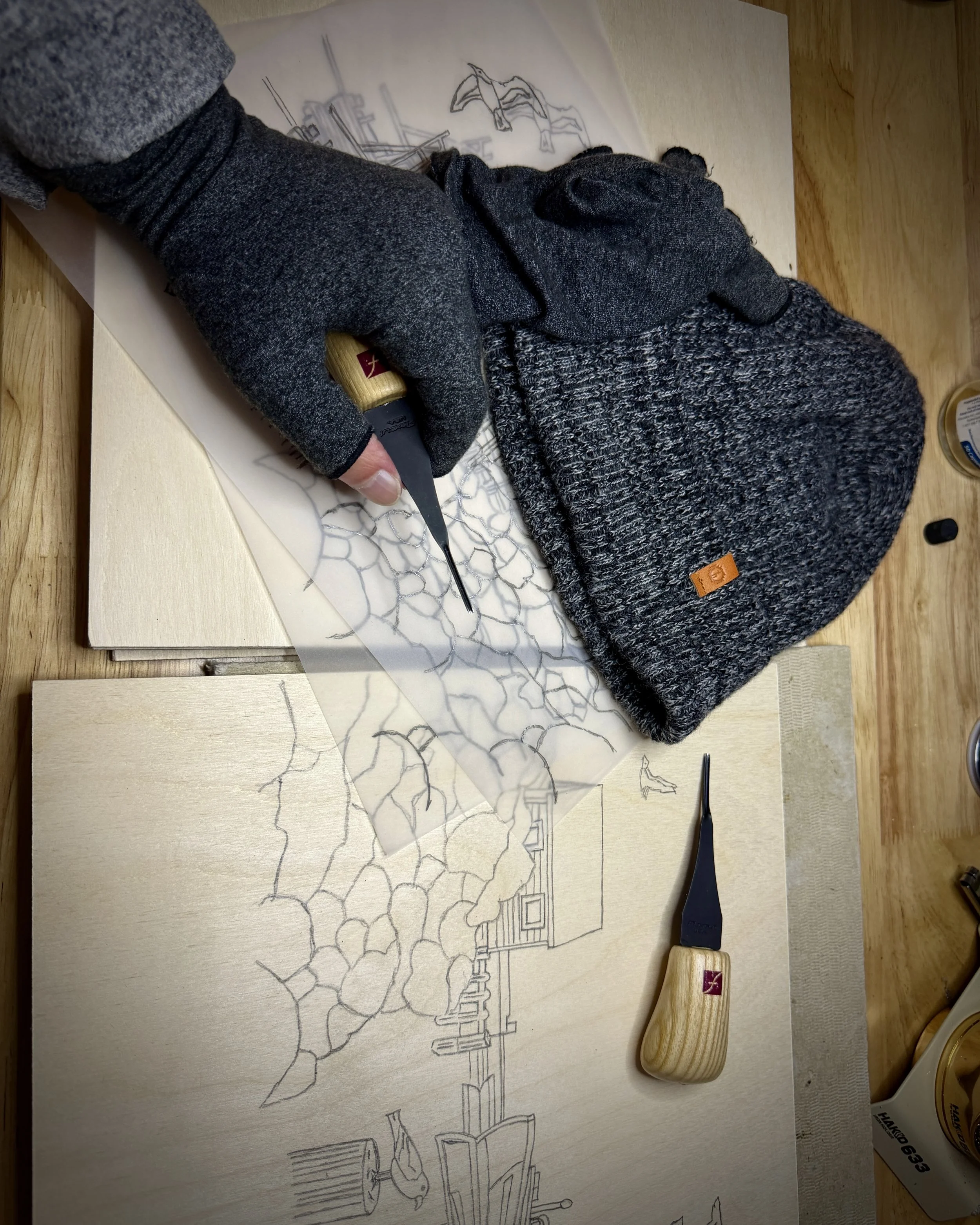Put Your Tuque On
(Pronounced “chook,” like “chick” with an oo)
“You didn't need correct pronunciation to understand the real meaning of warmth.”
The Word That Warmed Us
I’m quite sure that at this time of year, when I was a kid, my grandmother would be telling me I couldn’t go outside without my tuque on.
It’s the French-Canadian word for a woolen hat, hand-made if you were lucky.
I didn’t really like it back then. But these days, it feels like another part of my anatomy during the colder months. I even wear it in the Loft sometimes when the chill settles in.
I didn’t like wearing my boots, or those silly black rubbers over my shoes either. And the mittens to go with the tuque? No way.
But that’s what grandmothers did, didn’t they? They passed on those French-Canadian habits and customs from a much colder climate up north to a third generation of young French-Canadians who were beginning to find their own independence.
The Sound of Home
In hindsight, the word itself brings an incredible warmth that wraps me in the joy of a nearly forgotten era.
I’m sure there were plenty of days when I’d take my tuque off as soon as I was out of sight from her watchful gaze through the front window.
Today, though, I have a drawer full of them. And these days, the tuque seems to turn up everywhere, on every kind of person, no matter what neighborhood they grew up in.
Just about all of my ancestors came from the Québec region of Canada. Most of our neighbors came from the same places.
Though a few French “outsiders” might have spelled or pronounced it differently, like “took” or “chook,” I remember it just as I’ve written it here: tuque.
Our parents and grandparents had their own ways of fitting French words into the English language. But there was never any doubt—everyone in our neighborhood knew exactly what we meant.
Some of my favorites were the refusal to use the letter “h.” Or worse, putting it where it didn’t belong! House became “ouse.” Bathrobe became “batrobe.” And of course, my sisters had to go and comb their “air”—I mean hair—but not until they finished their “am and h’eggs.”
I can’t even say this stuff without laughing. 😆
But the best milk-through-the-nose moment came whenever my grandmother went on and on about what a good “ockey” player Bobby H’Orr was. Yikes! 😱
In those early factory cities, you didn’t need correct spelling where different languages blended together.
You didn’t need correct pronunciation to understand the real meaning of warmth.
What Remains
I’m still moved by the seasons now. The traditions that once made me feel awkward because of how I had to dress now fill me with a genuine warmth that connects me to a heritage I’m still part of.
There aren’t many people left who can tell the stories or explain the meaning behind these traditions. I wish more care had been taken to preserve and pass them on.
The green bowl and the “special” dish towel my grandmother pulled out each year when it was French meat pie season? No idea where they’ve gone.
Others have tried to recreate her recipe, and some have come close, but close is as good as it gets. Still, I’m grateful they’ve tried. It’s more than I’ve done.
But I still have my tuque. And I know that both my mom and my grandmother would be proud of how often I wear it.
They’d never have to worry about me taking it off the moment I left their view. Not this bald-headed guy.
Some traditions we adapt to. Some we grow to enjoy. Maybe my tuque isn’t just a hat after all.
Maybe it’s proof that comfort and continuity can be passed in wool and words alike.
And if I ever find that green bowl and that special dish towel, I’ll make my grandmother’s French meat pie again. And you can be sure I’ll be wearing my tuque when I do.
A Thought to Carry
What traditions made you feel foolish as a kid?
Do you wrap your arms around them in warmth these days?
Talk soon,
G



